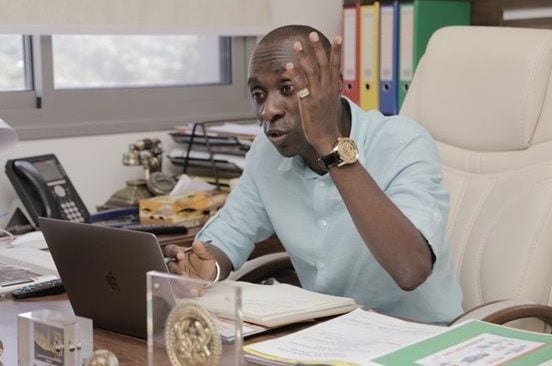Ernest Owusu-Bempah, a prominent figure within the New Patriotic Party (NPP), has emerged as a potential candidate for the crucial position of National Organiser as the party embarks on a rebuilding phase following a significant defeat in the 2024 general elections. Bempah’s potential candidacy is generating considerable interest and discussion within the party and the broader political landscape of Ghana, primarily due to his outspoken nature, strong communication skills, and extensive experience in political mobilization. His name has become synonymous with assertive political advocacy, particularly through his involvement in movements like Let My Vote Count Alliance and Fixing the Country Movement. These experiences, coupled with his role as a Deputy Communications Officer for the NPP, have positioned him as a potential leader capable of revitalizing the party’s organizational structure and re-energizing its base.
Owusu-Bempah’s candidacy is being championed by individuals like political analyst Kwaku Ntow, who highlights Bempah’s direct communication style, boldness, and fearlessness as qualities essential for the demanding role of National Organiser. Ntow underscores Bempah’s significant contributions to Ghana’s political discourse and activism, emphasizing his role in various political movements that have shaped the nation’s political narrative. These movements, often characterized by their vocal critique of government policies and their advocacy for electoral reforms, have provided Bempah with a platform to hone his communication and organizational skills, experiences that are now perceived as valuable assets for the NPP as it navigates the challenges of rebuilding after a major electoral setback. Ntow’s endorsement reflects a broader sentiment within certain segments of the NPP that Bempah’s leadership style and experience could be instrumental in revitalizing the party.
The NPP’s 2024 election defeat represents a critical juncture in the party’s history, prompting a period of introspection and strategic reassessment. A dedicated committee has been established to thoroughly investigate the factors that contributed to the loss, aiming to identify weaknesses and formulate strategies for future electoral success. This process of self-examination is crucial for the party’s long-term viability and its ability to regain public trust and support. The committee’s findings will likely serve as a roadmap for the NPP’s rebuilding efforts, informing its policy adjustments, organizational reforms, and communication strategies. The party’s willingness to engage in this critical self-assessment underscores its commitment to learning from its mistakes and adapting to the evolving political landscape.
The context of Owusu-Bempah’s potential candidacy is intrinsically linked to the NPP’s current state of rebuilding. The party is seeking individuals with the vision, energy, and organizational acumen to revitalize its base, reconnect with voters, and develop a winning strategy for the 2028 elections. Bempah’s supporters believe he embodies these qualities, viewing him as a dynamic leader capable of injecting fresh energy into the party and effectively communicating its message to the electorate. His experience in mobilizing support for various political causes, coupled with his understanding of the Ghanaian political landscape, are seen as crucial assets in the NPP’s efforts to regain its footing and position itself for future electoral success.
Furthermore, Owusu-Bempah’s potential candidacy reflects a broader debate within the NPP regarding the future direction of the party. His outspoken and sometimes controversial style represents a departure from the more traditional approach favored by some within the party, potentially signaling a shift towards a more assertive and confrontational political strategy. This potential shift in approach could have significant implications for the NPP’s internal dynamics and its interactions with other political parties and the public. The debate surrounding Bempah’s potential candidacy underscores the challenges the NPP faces in balancing the need for renewal and change with the desire to maintain its core values and principles.
Finally, the success of the NPP’s rebuilding efforts will depend on a multitude of factors, including the party’s ability to effectively address the concerns raised by the election loss investigation committee, its ability to unite its various factions, and its ability to articulate a compelling vision for the future of Ghana. Owusu-Bempah’s potential role within this rebuilding process remains uncertain, but his candidacy has undoubtedly become a focal point of discussion within the party, highlighting the ongoing debate about the type of leadership needed to navigate the challenges ahead. The outcome of this debate will have significant implications for the future direction of the NPP and its ability to compete effectively in future elections.














